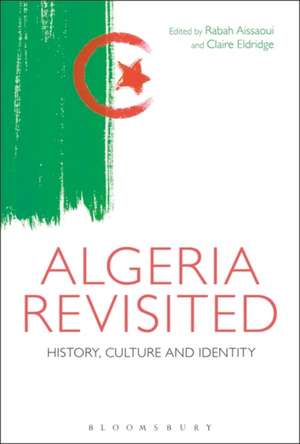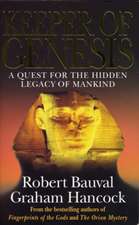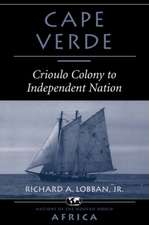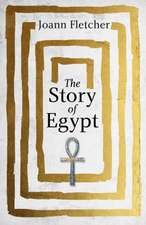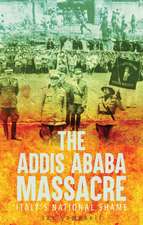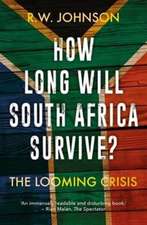Algeria Revisited: History, Culture and Identity
Editat de Rabah Aissaoui, Claire Eldridgeen Limba Engleză Hardback – 8 mar 2017
| Toate formatele și edițiile | Preț | Express |
|---|---|---|
| Paperback (1) | 239.59 lei 6-8 săpt. | |
| Bloomsbury Publishing – 19 sep 2018 | 239.59 lei 6-8 săpt. | |
| Hardback (1) | 600.06 lei 6-8 săpt. | |
| Bloomsbury Publishing – 8 mar 2017 | 600.06 lei 6-8 săpt. |
Preț: 600.06 lei
Preț vechi: 859.52 lei
-30% Nou
Puncte Express: 900
Preț estimativ în valută:
114.82€ • 119.65$ • 95.07£
114.82€ • 119.65$ • 95.07£
Carte tipărită la comandă
Livrare economică 03-17 aprilie
Preluare comenzi: 021 569.72.76
Specificații
ISBN-13: 9781474221030
ISBN-10: 1474221033
Pagini: 280
Ilustrații: 3 bw illus
Dimensiuni: 156 x 234 x 20 mm
Greutate: 0.61 kg
Editura: Bloomsbury Publishing
Colecția Bloomsbury Academic
Locul publicării:London, United Kingdom
ISBN-10: 1474221033
Pagini: 280
Ilustrații: 3 bw illus
Dimensiuni: 156 x 234 x 20 mm
Greutate: 0.61 kg
Editura: Bloomsbury Publishing
Colecția Bloomsbury Academic
Locul publicării:London, United Kingdom
Caracteristici
Leading scholars discuss the latest developments in the study of Algerian identity in the context of colonisation and independence
Notă biografică
Rabah Aissaoui is Senior Lecturer in French at the University of Leicester, UK. He is the author of Immigration and National identity: North African political Movements in Colonial and Postcolonial France (2009).Claire Eldridge is Lecturer in Modern European History at the University of Leeds, UK. She is the author of From Empire to Exile: History and Memory within the Pied-Noir and Harki Communities, 1962-2012 (2016).
Cuprins
List of IllustrationsAcknowledgementsList of ContributorsMap of AlgeriaIntroduction: Revisiting Algeria (Rabah Aissaoui, University of Leicester, UK and Claire Eldridge, University of Leeds, UK)Part 1: Re-imagining Colonial Conflicts and Relationships1. Criminalising Dissent: Policing Banditry in the Constantinois, 1914-18 (Samuel Kalman, St Francis Xavier University, Canada)2. The Young Algerians and the Question of the Muslim Draft, 1900-14 (Michelle Mann, Brandeis University, USA)3. 'Between Two Worlds': Emir Khaled and the Young Algerians at the Beginning of the Twentieth Century in Algeria (Rabah Aissaoui, University of Leicester, UK) 4. Weapons of Mass Representation: Algerians in the French Parliament, 1958-62 (Arthur Asseraf, University of Oxford, UK)Part 2: Identity Construction and Contestation5. Individual and Collective Identity in Algerian Francophone Literature: Jean Sénac's 'Poetry on All Fronts' (Blandine Valfort, Université de Lyon II, France)6. Algerian Female Identity Re-constitution and Colonial Language: A Postcolonial Malaise in Assia Djebar's L'Amour, la Fantasia (Rachida Yassine, Ibn Zohr University, Morocco)7. 'Encounters' of Frustration and Hope in the Writing of Maïssa Bey (Samira Farhoud, St Thomas University, Canada and Carey Watt, St Thomas University, Canada)8. On the Shifting Significance of 'Algerian Cinema' as a Category of Analysis (Patricia Caillé, Université de Strasbourg, France)9. The Algerian Woman in Conflict in The Battle of Algiers (Gillo Pontecorvo, 1966) (Sophie Bélot, University of Sheffield, UK)Part 3: Remembering Algeria10. The Entangled Politics of Postcolonial Commemoration (Jennifer E. Sessions, University of Iowa, USA)11. Passing the Torch: Memory Transmission and Activism within the Pied-Noir Community Fifty Years after Algerian Independence (Claire Eldridge, University of Leeds, UK) Conclusion: Culture as War by Other Means: Community, Conflict and Cultural Revolution, 1967-81 (James McDougall, University of Oxford, UK)Index
Recenzii
By bringing together new and dynamic pieces of research, Algeria Revisited offers a new perspective on Algeria's ongoing and active engagement with its postcolonial identity and reinforces the enduring importance of the Algerian experience in a global context.
[An] exciting edited volume on the end of empire in France and Algeria . this volume will be valuable in undergraduate and graduate classrooms for educators who seek to complicate their students' understanding of France's colonial past and decolonizing present.
The strength of this volume lies in its critical re-examination of a plurality of Algerian pasts across historical, cultural, and political discourses. If the volume aims to 'revisit' questions pertaining to Algeria, it does so successfully within an interdisciplinary framework.
Aissaoui and Eldridge have skilfully compiled a diverse and cogent volume.
Eldridge and Aissaoui conceived of a volume that is not only timely by genuinely engaging ... The judiciously selected and juxtaposed chapters in this compelling collection offer real insights into moments of Algerian history and cultures.
In this exemplary representation of cross-disciplinary scholarly collaboration, the different authors of this volume (edited by Rabah Aissaoui and Claire Eldridge) provide rich and insightful analyses, through carefully crafted case-studies.
Bringing together a refreshing variety of original research, this is an important book that goes well beyond conventional narratives of both colonial and postcolonial Algeria. Sensitive to the political complexities involved, and to issues of culture, gender, language and power, this well-focused collection incisively challenges simplistic dichotomies and mythologies on all sides, rescuing a multiplicity of neglected historical voices from oblivion and opening them up to critical but fair examination.
This absorbing volume underlines the continuing topicality of Algeria. Half a century on from its traumatic accession to independence, the postcolonial nation's still contested identity - political, cultural and, especially, memorial - continues to haunt France and to fascinate all those seeking to understand the contemporary Maghreb. Bringing together incisive new research from both sides of the Mediterranean, the Channel and the Atlantic, it makes a forceful case for the abiding and authentically global significance of the Algerian experience.
Algeria Revisited's smart essays open new ways of thinking about the colonial, anticolonial, and postcolonial histories that have become the new center for innovative research on Algeria and France. To pull this off, editors Rabah Aissaoui and Claire Eldridge have assembled a superb cast of scholars who examine, each with their own personality and interest, the drama and the trauma of conquest and independence - an epic struggle that set the stage for one of the world's most complex controversial colonial encounters. The yield here is significant insight, careful analysis, and an honest questioning of the present and past anxieties. It is splendid contribution to the field.
[An] exciting edited volume on the end of empire in France and Algeria . this volume will be valuable in undergraduate and graduate classrooms for educators who seek to complicate their students' understanding of France's colonial past and decolonizing present.
The strength of this volume lies in its critical re-examination of a plurality of Algerian pasts across historical, cultural, and political discourses. If the volume aims to 'revisit' questions pertaining to Algeria, it does so successfully within an interdisciplinary framework.
Aissaoui and Eldridge have skilfully compiled a diverse and cogent volume.
Eldridge and Aissaoui conceived of a volume that is not only timely by genuinely engaging ... The judiciously selected and juxtaposed chapters in this compelling collection offer real insights into moments of Algerian history and cultures.
In this exemplary representation of cross-disciplinary scholarly collaboration, the different authors of this volume (edited by Rabah Aissaoui and Claire Eldridge) provide rich and insightful analyses, through carefully crafted case-studies.
Bringing together a refreshing variety of original research, this is an important book that goes well beyond conventional narratives of both colonial and postcolonial Algeria. Sensitive to the political complexities involved, and to issues of culture, gender, language and power, this well-focused collection incisively challenges simplistic dichotomies and mythologies on all sides, rescuing a multiplicity of neglected historical voices from oblivion and opening them up to critical but fair examination.
This absorbing volume underlines the continuing topicality of Algeria. Half a century on from its traumatic accession to independence, the postcolonial nation's still contested identity - political, cultural and, especially, memorial - continues to haunt France and to fascinate all those seeking to understand the contemporary Maghreb. Bringing together incisive new research from both sides of the Mediterranean, the Channel and the Atlantic, it makes a forceful case for the abiding and authentically global significance of the Algerian experience.
Algeria Revisited's smart essays open new ways of thinking about the colonial, anticolonial, and postcolonial histories that have become the new center for innovative research on Algeria and France. To pull this off, editors Rabah Aissaoui and Claire Eldridge have assembled a superb cast of scholars who examine, each with their own personality and interest, the drama and the trauma of conquest and independence - an epic struggle that set the stage for one of the world's most complex controversial colonial encounters. The yield here is significant insight, careful analysis, and an honest questioning of the present and past anxieties. It is splendid contribution to the field.
